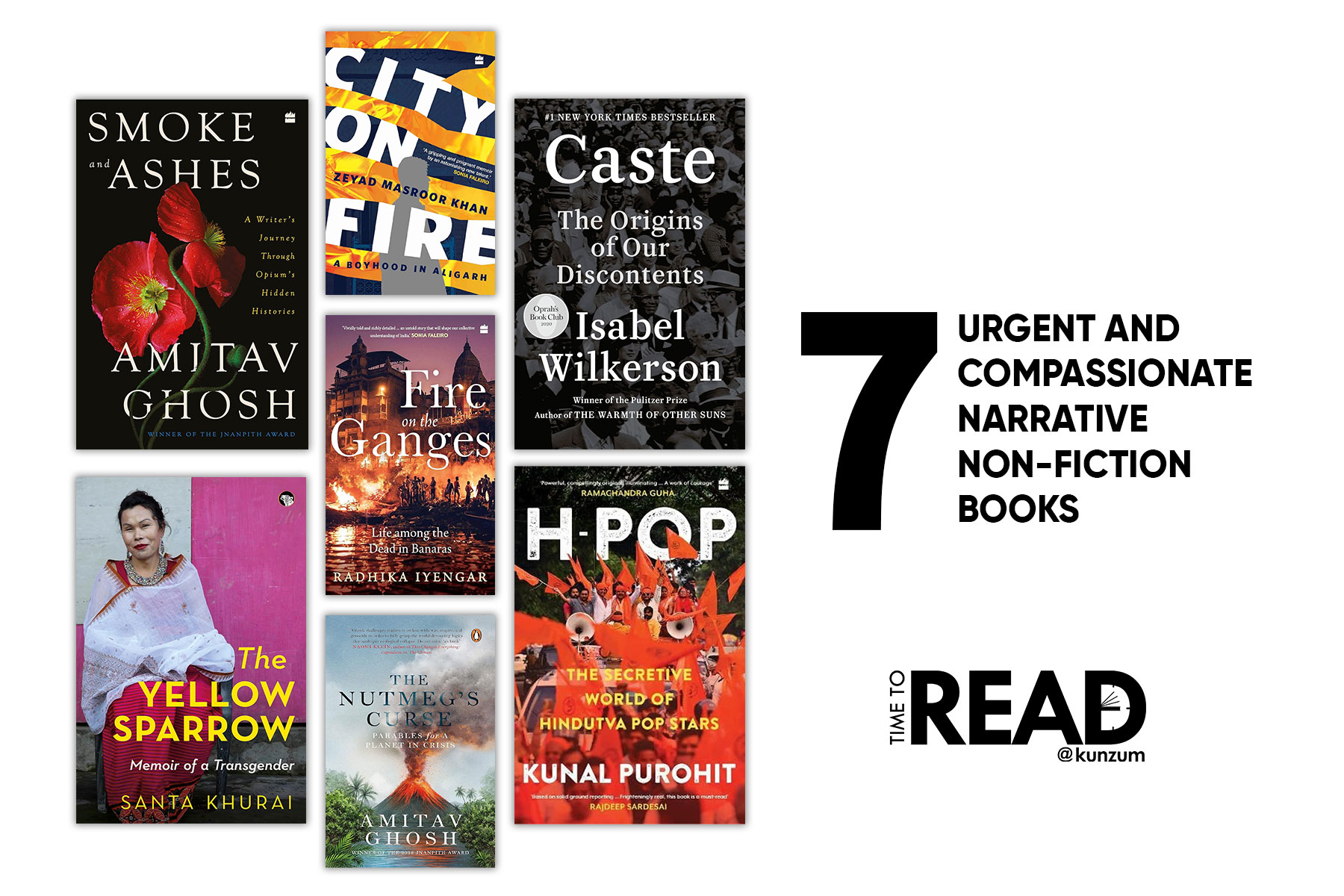
We live in interesting times defined by historical global catastrophes, and if there is one thing that’s true about history, it’s that it repeats itself. Longform narrative nonfiction helps us understand the world in the wake of historical shock events by allowing us to look at specific events and phenomenons in the larger scheme of human history and contextualising them against historical precedents. Here are 7 works of longform narrative nonfiction that explore intimate and expansive subjects like casteism, colonialism, climate change, gender and sexual identity, politics, and popular culture from both personal and universal perspectives, and help us better understand the world we live in:

Caste: The Origins of Our Discontents by Isabel Wilkerson
Isabel Wilkerson’s Caste: The Origins of Our Discontents delves into the profound impact of the unspoken but deeply ingrained social hierarchy in America, drawing parallels with the Hindu caste system in India and the racial segregation of Jewish people in Nazi Germany. Wilkerson illuminates how caste systems perpetuate discrimination and shape society, influencing everything from education to healthcare. Through compelling stories of real events and rigorous research, she challenges readers to confront the invisible barriers that maintain these divisions and offers a path towards understanding and dismantling them.
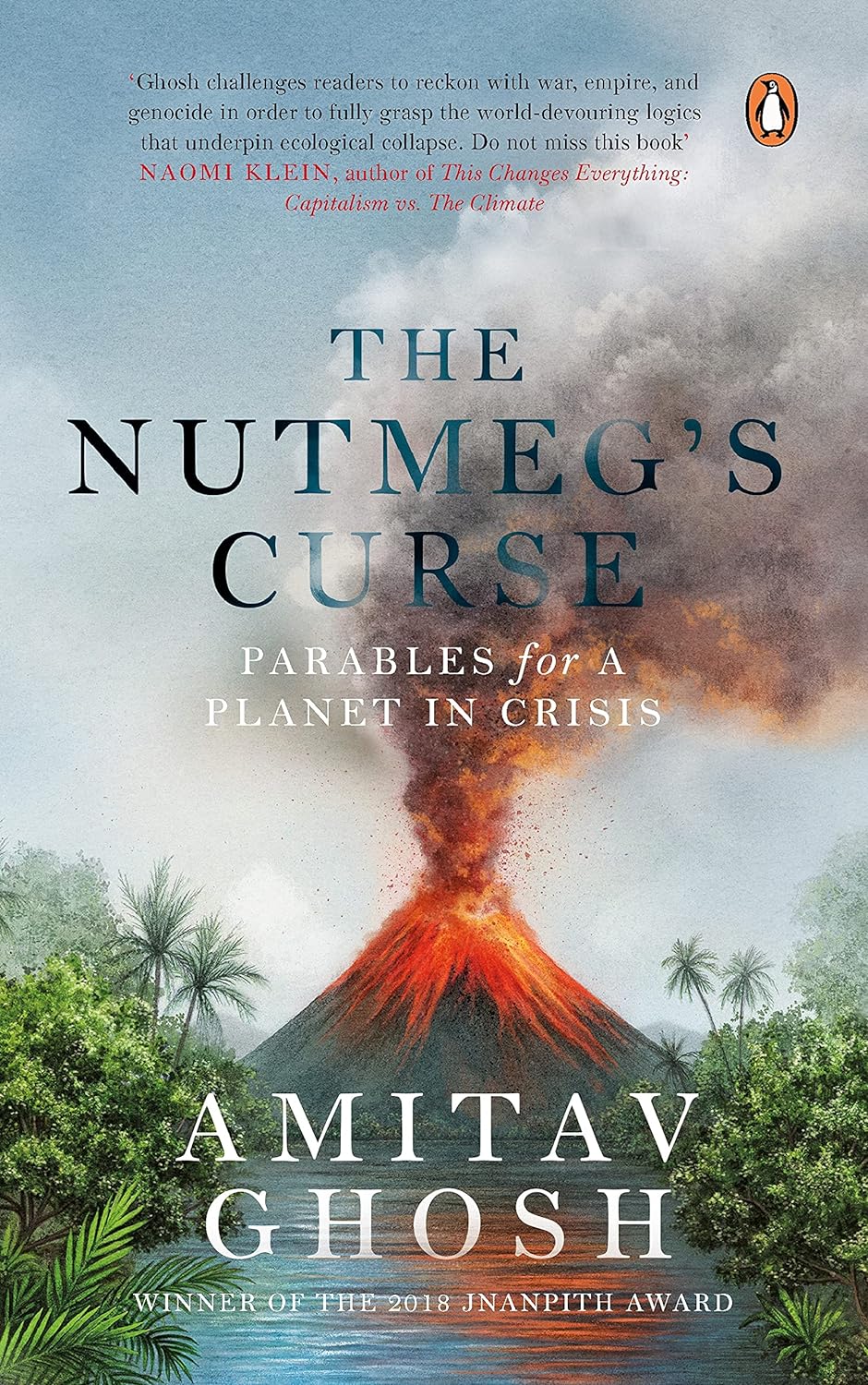
The Nutmeg’s Curse: Parables for a Planet in Crisis by Amitav Ghosh
The Nutmeg’s Curse is Amitav Ghosh’s second book of nonfiction about the climate crisis after The Great Derangement: Climate Change and the Unthinkable. In The Nutmeg’s Curse, Ghosh explores the entangled history of trade, colonialism, and ecological exploitation through the conquest of Banda Islands by the Dutch East India Company and the massacre of Bandanese people in 1621. Ghosh meticulously traces the impact of nutmeg cultivation on the Banda Islands in Indonesia, revealing the intricate connections between colonialism, global commerce, and environmental degradation. He unravels the complexities of power, greed, and human suffering through brilliant storytelling and rigorous research, shedding light on the enduring legacies of colonialism in the modern world.
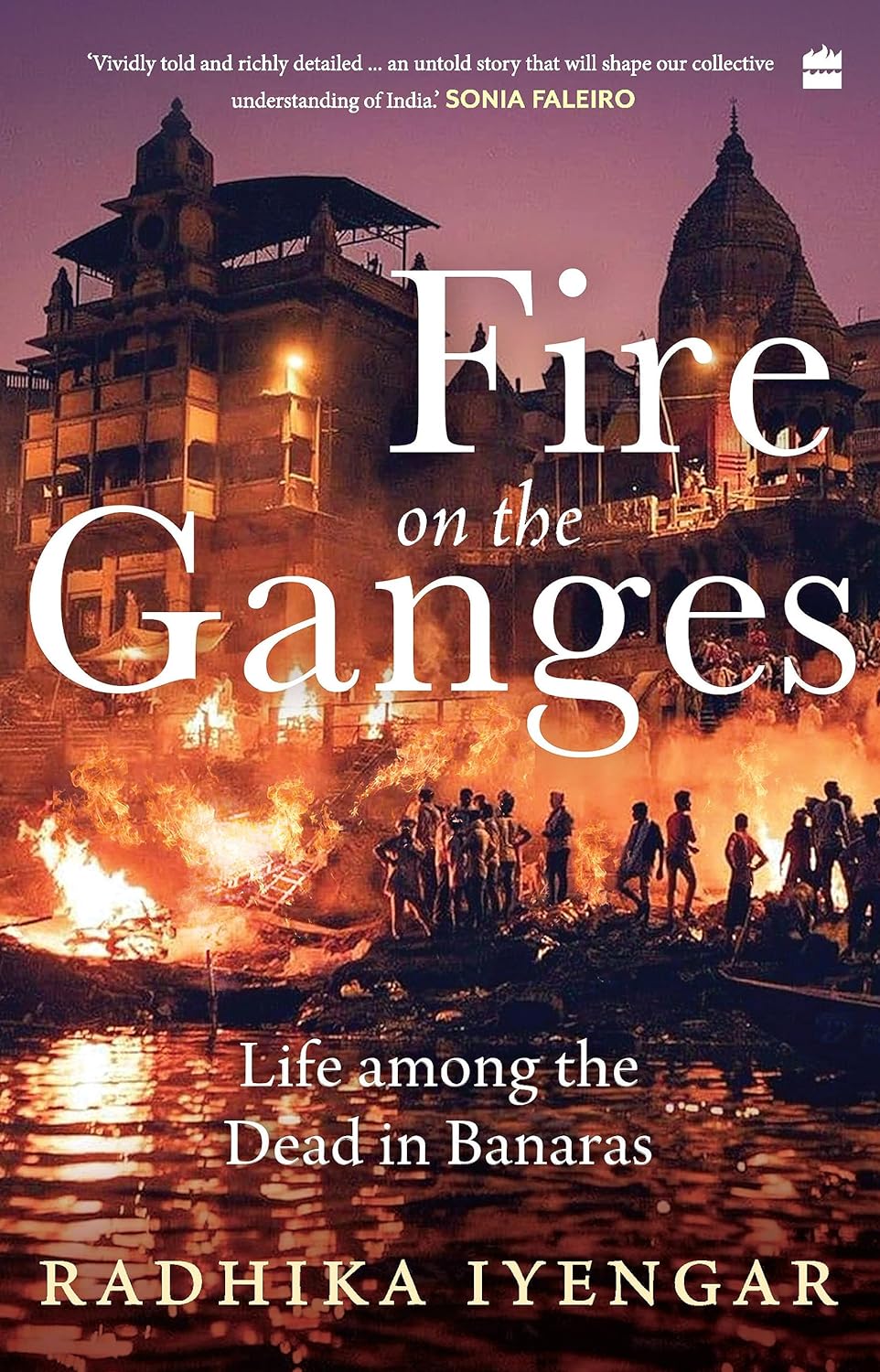
Fire on the Ganges: Life among the Dead in Banaras by Radhika Iyengar
Radhika Iyengar’s Fire on the Ganges is a deep dive into casteism, love, hope, and liberation in Banaras’ Chand Ghat — a claustrophobic ghetto predominantly inhabited by the Doms who are designated by Hindu caste tradition to perform the rite of cremation. In Fire on the Ganges, Iyengar documents how oppressor-caste Hindus and well-off Dom men dictate and police what the Dom men who work in the cremation grounds can and cannot do, and how these men, in turn, dictate and police what the Dom women in their lives can and cannot do. She lays bare and examines the kyriarchy that exists at the centre of everyday life in Chand Ghat, and how young men and women are going against the grain and breaking through Banaras’s caste barriers at great personal cost, one small step at a time.

City on Fire: A Boyhood in Aligarh by Zeyad Masroor Khan
Zeyad Masroor Khan’s memoir City on Fire: A Boyhood in Aligarh begins with the haunting memory of a brutal, bloody riot that engulfed Farsh Manzil—Khan’s ancestral home and the “unofficial line of control” between Hindu-majority Kanwari Ganj and Muslim-majority Upar Kot—when his sister was pregnant with her first child, and ends with a question: when a young Khan asks his father why he didn’t leave Aligarh for Pakistan like his brothers had, his father responds, “How could I ever live if I left my home?” In City on Fire, Khan takes us through his formative years in Aligarh and Delhi as a young Muslim man, and examines the very notion of what it means to be Muslim in India today — especially in a city like Aligarh, where, in Khan’s words, “the idea of Pakistan is said to be born.”
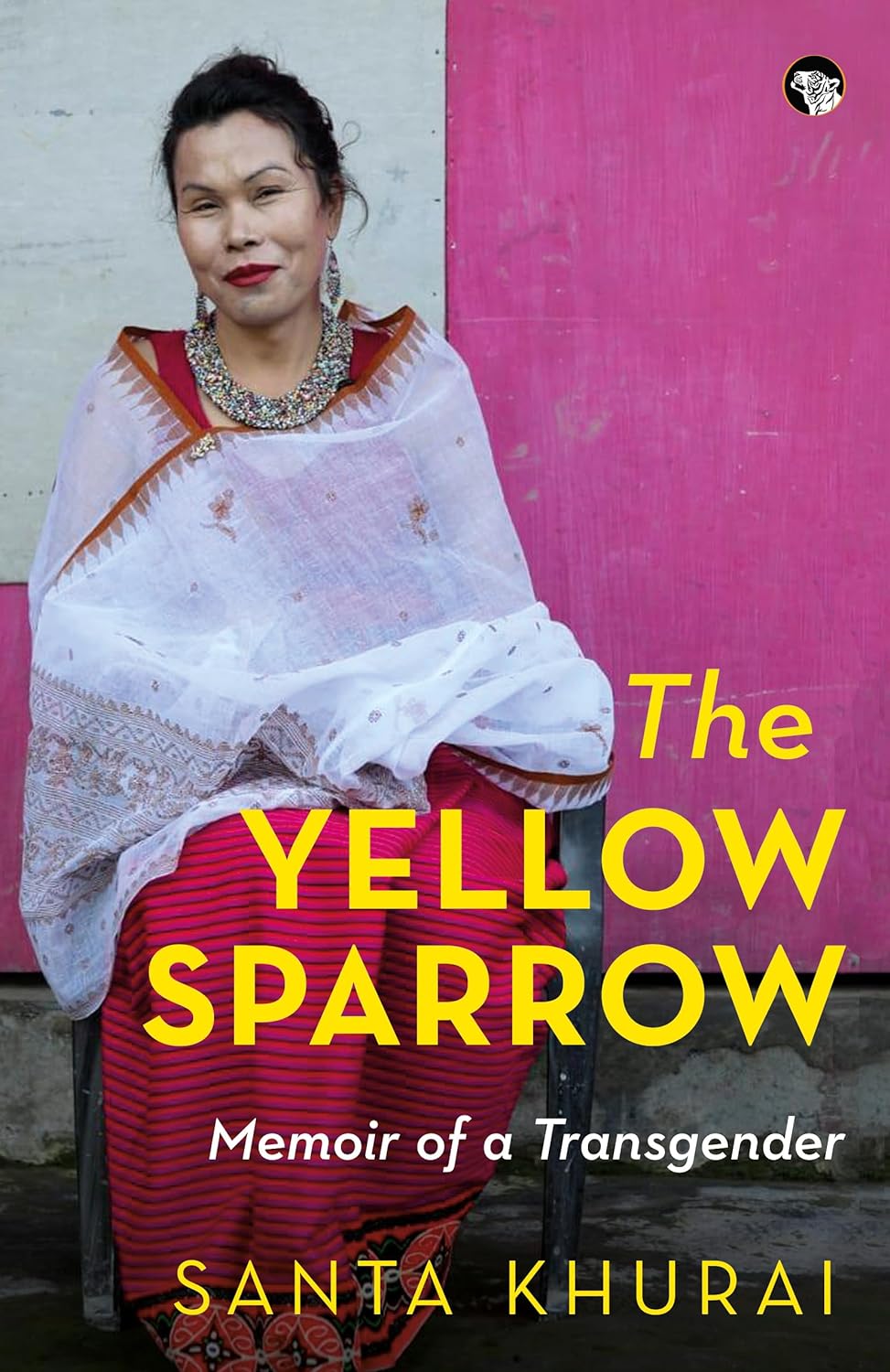
The Yellow Sparrow: Memoir of a Transgender by Santa Khurai
This breathtaking and moving memoir by Santa Khurai, translated from the Manipuri by Rubani Yumkhaibam, follows Khurai’s life as a transwoman in Manipur. Assigned male at birth, Khurai was seventeen years old when she came out as transgender despite familial opposition and social discrimination. The Yellow Sparrow is an emotionally rich and intimate account of her life as a visibly trans woman in a society that misunderstands, fears, and others transpeople, of her traumatic marriage to a cisgender heterosexual man, of her motherhood through adoption, and of her time as an activist and leader of the All Manipur Nupi Maanbi Association. It is a true story about the triumph of the indomitable human spirit against overwhelming odds.

Smoke and Ashes: A Writer’s Journey through Opium’s Hidden Histories by Amitav Ghosh
Amitav Ghosh’s Smoke and Ashes is a travelogue, a memoir, and an excursion into economic, cultural, and colonial history. In Smoke and Ashes, Ghosh examines the transformative effect the opium trade had on Britain, India and China, as well as on the world at large. Engineered by the British Empire, which exported opium from India to sell in China, the sprawling opium trade and its revenues were once essential to the British Empire’s survival. In fact, Ghosh traces the origins of some of the world’s biggest corporations, several of America’s most powerful families and institutions, and contemporary globalism itself to the opium trade. Moving deftly between horticultural histories, the mythologies of capitalism and the social and cultural repercussions of colonialism, Smoke and Ashes reveals the pivotal role one small plant has played in the making of the world that is now teetering on the edge of catastrophic environmental collapse.
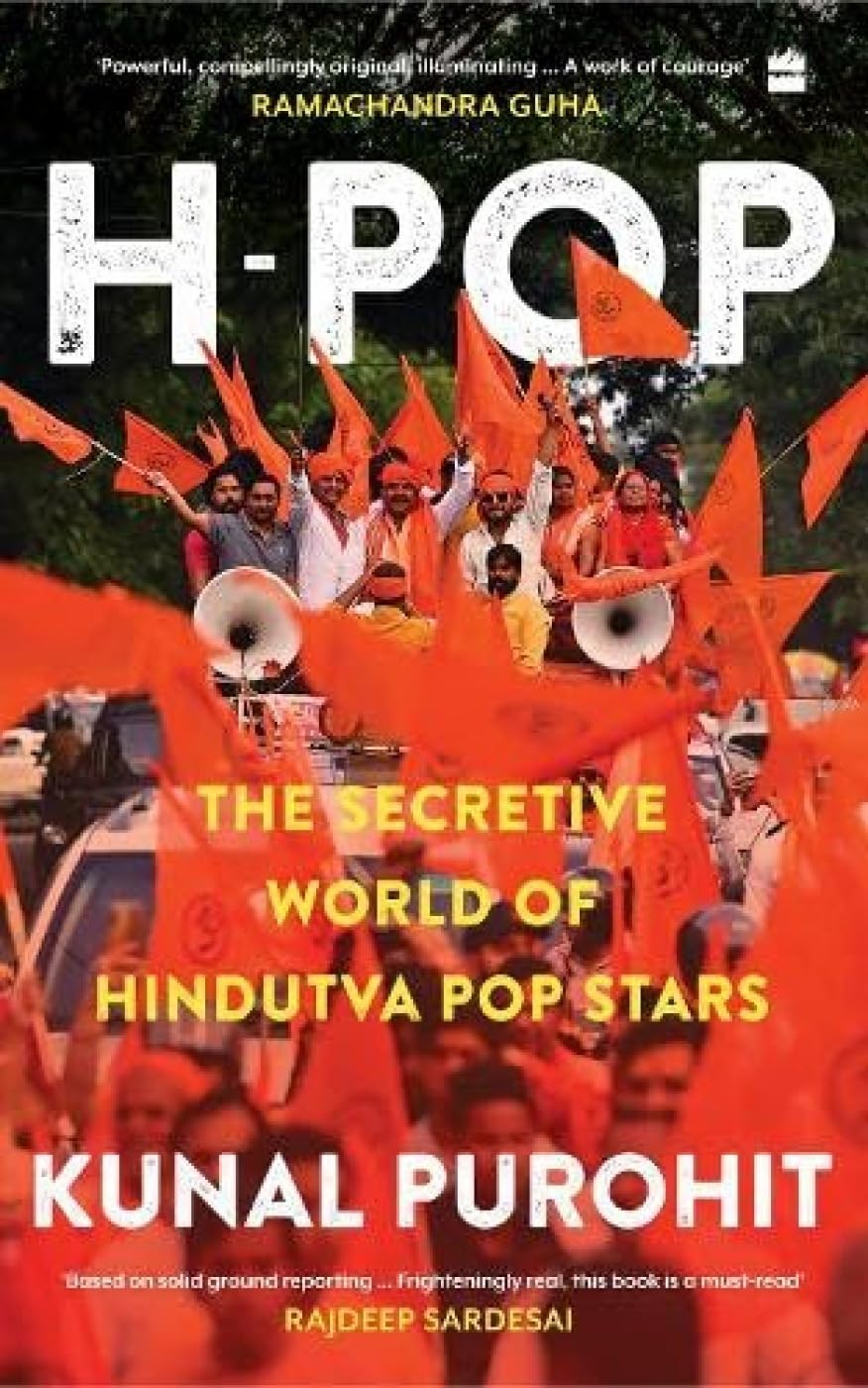
H-Pop: The Secretive World of Hindutva Pop Stars by Kunal Purohit
What is Hindutva Pop or H-Pop? What makes it so popular in the Hindi heartland? Who are its stars and its audience? Who is providing the resources to produce and broadcast it? And what kind of an India is it trying to imagine? These are some of the questions that award-winning journalist Kunal Purohit explores in his riveting new book of longform investigative journalism as he travels through India, profiling some of H-Pop’s most prolific and popular creators. He interrogates whether the creators are driven by ideology or commerce, and what motivates the audience to obsessively consume their daily dose of viral bigotry. In doing so, Purohit uncovers the frightening face of a New India — a country that is united by hate, and divided by art.
Pick up an urgent and compassionate non-fiction narrative novel from any Kunzum store or WhatsApp +91.8800200280 to order. Buy the book(s) and the coffee’s on us.

